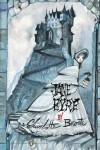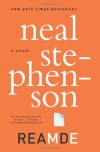
Pauline Chen’s new novel, The Red Chamber, is actually a retelling of a classic Chinese novel, The Dream of the Red Chamber. Chen’s version is severely truncated; the original novel is currently sold by Penguin in three volumes and was never finished. Chen freely admits she has taken many liberties with the story in order to better introduce it to Western audiences, she claims. I can in no way compare the two, since I had not even heard of the original before reading Chen’s book, so I will take The Red Chamber as a unique work of fiction.The Red Chamber is set in 18th c. China and details the lives of the Jia family. The Jias are wealthy and have long and good connections to the imperial palace through the family patriarch, Jia Zheng; however, it is Lady Jia who truly rules the household. When Daiyu’s mother dies, her father sends her to stay with her maternal grandmother at the Jia family palace. There Daiyu meets three individuals who will leave indelible marks on her life: Xue Baochi, daughter of the widowed sister-in-law of Jia Zheng, Wang Xifeng, wife of Jia Lian, and Jia Baoyu, Zheng’s son and Lady Jia’s favorite (there is a helpful family tree at the beginning of the novel). The novel details the intimate family bonds and sometimes chains that bind each character, except for Daiyu, perhaps. It is grand and intimate at the same time; family drama set against the back drop of imperial strife.Chen’s narrative is told through mainly the three females of the novel, with occasional forays into Zheng’s or Baoyu’s perspective. Each of the women is unique as are their voices. Xifeng is the under-appreciated house-hold manager, Baochi is the seemingly cold but dutiful daughter, and Daiyu is the “gauche” newcomer, daughter of a mother who threw away everything and defied Lady Jia to marry for love. Lady Jia never forgave her, even in death and her wrath has carried over to Daiyu. Three events set the course for the fate of the Jia family: the cover up of a murder, illicit love (on multiple fronts), and the fall of an Emperor. How will Daiyu survive in the grand city of Bejing amid all of the family politics and sweeping change?Many have compared this to Artur Goldstein’s Memoirs of a Geisha, but I was constantly reminded of Raise the Red Lantern, the film by Zhang Yimou. I really, really enjoyed this novel. It immediately draws the reader in and through Chen’s gift for narrative, we begin to understand what drives each of the three women and who they must be in a tight-knit family irrevocably bound together. I wanted more after finishing this, and perhaps that was Chen’s intent: give Western readers a taste of a massive and loved Chinese classic so they’ll go in search of the original. While I’m not rushing out to the bookstore to find it, I did add it to my never-ending wishlist. Final verdict: highly recommended for those who love to be swept away by historical and intimate family portraits.
 Pauline Chen’s new novel, The Red Chamber, is actually a retelling of a classic Chinese novel, The Dream of the Red Chamber. Chen’s version is severely truncated; the original novel is currently sold by Penguin in three volumes and was never finished. Chen freely admits she has taken many liberties with the story in order to better introduce it to Western audiences, she claims. I can in no way compare the two, since I had not even heard of the original before reading Chen’s book, so I will take The Red Chamber as a unique work of fiction.The Red Chamber is set in 18th c. China and details the lives of the Jia family. The Jias are wealthy and have long and good connections to the imperial palace through the family patriarch, Jia Zheng; however, it is Lady Jia who truly rules the household. When Daiyu’s mother dies, her father sends her to stay with her maternal grandmother at the Jia family palace. There Daiyu meets three individuals who will leave indelible marks on her life: Xue Baochi, daughter of the widowed sister-in-law of Jia Zheng, Wang Xifeng, wife of Jia Lian, and Jia Baoyu, Zheng’s son and Lady Jia’s favorite (there is a helpful family tree at the beginning of the novel). The novel details the intimate family bonds and sometimes chains that bind each character, except for Daiyu, perhaps. It is grand and intimate at the same time; family drama set against the back drop of imperial strife.Chen’s narrative is told through mainly the three females of the novel, with occasional forays into Zheng’s or Baoyu’s perspective. Each of the women is unique as are their voices. Xifeng is the under-appreciated house-hold manager, Baochi is the seemingly cold but dutiful daughter, and Daiyu is the “gauche” newcomer, daughter of a mother who threw away everything and defied Lady Jia to marry for love. Lady Jia never forgave her, even in death and her wrath has carried over to Daiyu. Three events set the course for the fate of the Jia family: the cover up of a murder, illicit love (on multiple fronts), and the fall of an Emperor. How will Daiyu survive in the grand city of Bejing amid all of the family politics and sweeping change?Many have compared this to Artur Goldstein’s Memoirs of a Geisha, but I was constantly reminded of Raise the Red Lantern, the film by Zhang Yimou. I really, really enjoyed this novel. It immediately draws the reader in and through Chen’s gift for narrative, we begin to understand what drives each of the three women and who they must be in a tight-knit family irrevocably bound together. I wanted more after finishing this, and perhaps that was Chen’s intent: give Western readers a taste of a massive and loved Chinese classic so they’ll go in search of the original. While I’m not rushing out to the bookstore to find it, I did add it to my never-ending wishlist. Final verdict: highly recommended for those who love to be swept away by historical and intimate family portraits.
Pauline Chen’s new novel, The Red Chamber, is actually a retelling of a classic Chinese novel, The Dream of the Red Chamber. Chen’s version is severely truncated; the original novel is currently sold by Penguin in three volumes and was never finished. Chen freely admits she has taken many liberties with the story in order to better introduce it to Western audiences, she claims. I can in no way compare the two, since I had not even heard of the original before reading Chen’s book, so I will take The Red Chamber as a unique work of fiction.The Red Chamber is set in 18th c. China and details the lives of the Jia family. The Jias are wealthy and have long and good connections to the imperial palace through the family patriarch, Jia Zheng; however, it is Lady Jia who truly rules the household. When Daiyu’s mother dies, her father sends her to stay with her maternal grandmother at the Jia family palace. There Daiyu meets three individuals who will leave indelible marks on her life: Xue Baochi, daughter of the widowed sister-in-law of Jia Zheng, Wang Xifeng, wife of Jia Lian, and Jia Baoyu, Zheng’s son and Lady Jia’s favorite (there is a helpful family tree at the beginning of the novel). The novel details the intimate family bonds and sometimes chains that bind each character, except for Daiyu, perhaps. It is grand and intimate at the same time; family drama set against the back drop of imperial strife.Chen’s narrative is told through mainly the three females of the novel, with occasional forays into Zheng’s or Baoyu’s perspective. Each of the women is unique as are their voices. Xifeng is the under-appreciated house-hold manager, Baochi is the seemingly cold but dutiful daughter, and Daiyu is the “gauche” newcomer, daughter of a mother who threw away everything and defied Lady Jia to marry for love. Lady Jia never forgave her, even in death and her wrath has carried over to Daiyu. Three events set the course for the fate of the Jia family: the cover up of a murder, illicit love (on multiple fronts), and the fall of an Emperor. How will Daiyu survive in the grand city of Bejing amid all of the family politics and sweeping change?Many have compared this to Artur Goldstein’s Memoirs of a Geisha, but I was constantly reminded of Raise the Red Lantern, the film by Zhang Yimou. I really, really enjoyed this novel. It immediately draws the reader in and through Chen’s gift for narrative, we begin to understand what drives each of the three women and who they must be in a tight-knit family irrevocably bound together. I wanted more after finishing this, and perhaps that was Chen’s intent: give Western readers a taste of a massive and loved Chinese classic so they’ll go in search of the original. While I’m not rushing out to the bookstore to find it, I did add it to my never-ending wishlist. Final verdict: highly recommended for those who love to be swept away by historical and intimate family portraits.













